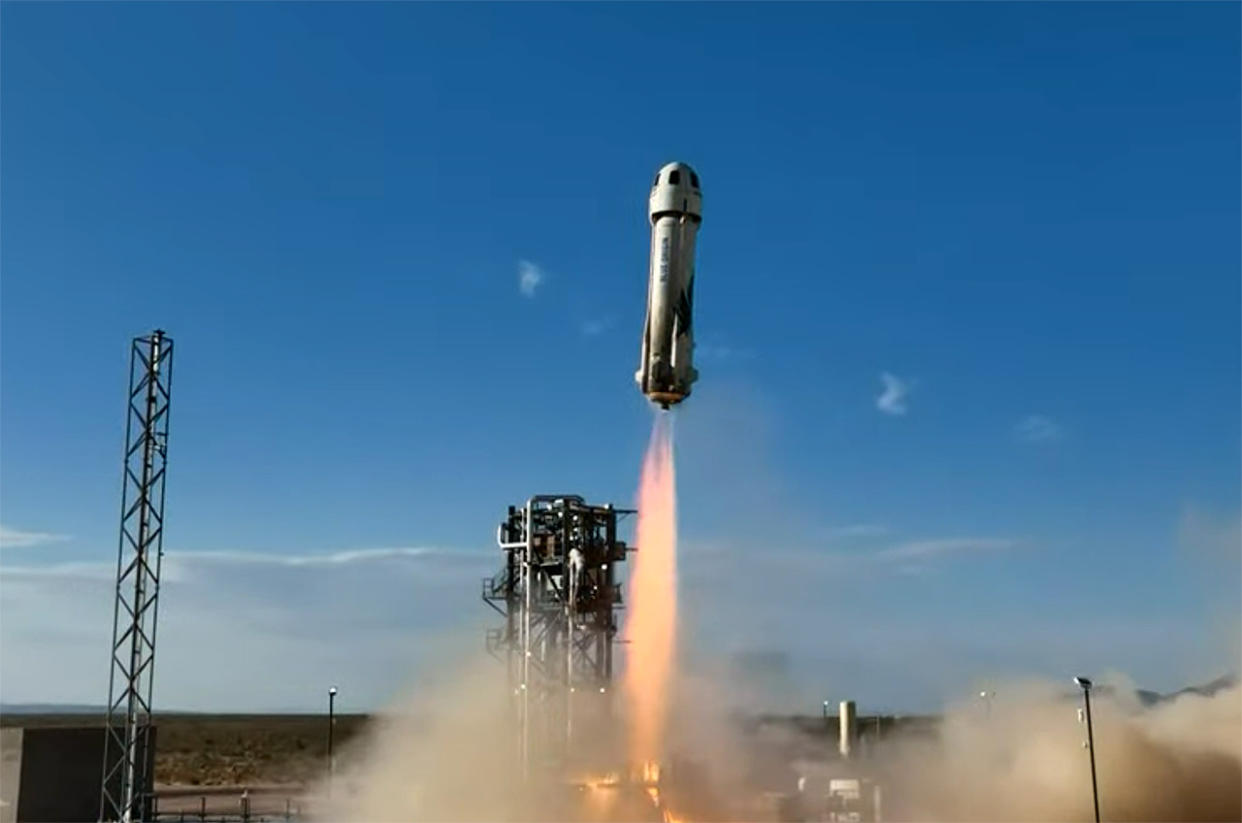Blue Origin plans to fly all-female crew to suborbital space: report

- Oops!Something went wrong.Please try again later.
Blue Origin plans to fly an all-female crew to suborbital space in the next year or so, according to a report in WSJ. Magazine.
The news comes courtesy of Lauren Sanchez, the girlfriend of Blue Origin founder Jeff Bezos. Sanchez spoke to WSJ. Magazine for a story that was published on Wednesday (Jan. 25), revealing that she plans to lead the six-person mission aboard Blue Origin's New Shepard suborbital vehicle.
We don't know the identities of the other five passengers, but Sanchez told WSJ. Magazine that they will be "women who are making a difference in the world and who are impactful and have a message to send." (The story is behind a paywall.)
Related: Jeff Bezos' Blue Origin launches 6 people to space in fourth crewed flight
The launch date is unknown at this point, but Sanchez, a media personality and trained helicopter pilot, said she hopes to fly by early next year.
Blue Origin has launched six crewed suborbital missions to date, all of them successful, with the reusable New Shepard, which consists of a first-stage booster and a crew capsule. The first of these flights, which launched in July 2021, sent Bezos aloft with three other people, including his brother Mark and aviation pioneer Wally Funk.
The second New Shepard crewed flight, in October 2021, also lofted four people to the final frontier. The following four crewed missions, however, used all six of the vehicle's seats.
Related stories:
— Blue Origin's 1st New Shepard passenger launch with Jeff Bezos (photos)
— Photos: The 1st space tourists
— New Shepard: Rocket for space tourism
The most recent New Shepard passenger flight took place in August 2022. A month later, Blue Origin's payload-only New Shepard vehicle, the RSS H.G. Wells, suffered a failure during an autonomous research mission, leading to the loss of the booster. (A different New Shepard vehicle, RSS First Step, flies the company's tourism missions.)
RSS H.G. Wells' escape system worked as designed, rocketing the capsule away from danger; it landed safely under parachutes.
New Shepard hasn't flown, crewed or uncrewed, since that accident, which may still remain under investigation. Blue Origin has not yet revealed what caused the anomaly.
New Shepard flights are brief, lasting just 11 minutes or so from liftoff to touchdown of the capsule. Passengers experience a few minutes of weightlessness and get to see Earth against the blackness of space.
Editor's note: This story was updated at 5 p.m. ET on Jan. 27 to clarify that Sanchez spoke with WSJ. Magazine, not The Wall Street Journal.
Mike Wall is the author of "Out There" (Grand Central Publishing, 2018; illustrated by Karl Tate), a book about the search for alien life. Follow him on Twitter @michaeldwall. Follow us on Twitter @Spacedotcom or Facebook.

